Empowering Youth and Women in Morocco is Key to Development
A Long History of Friendship Delivers for Moroccans
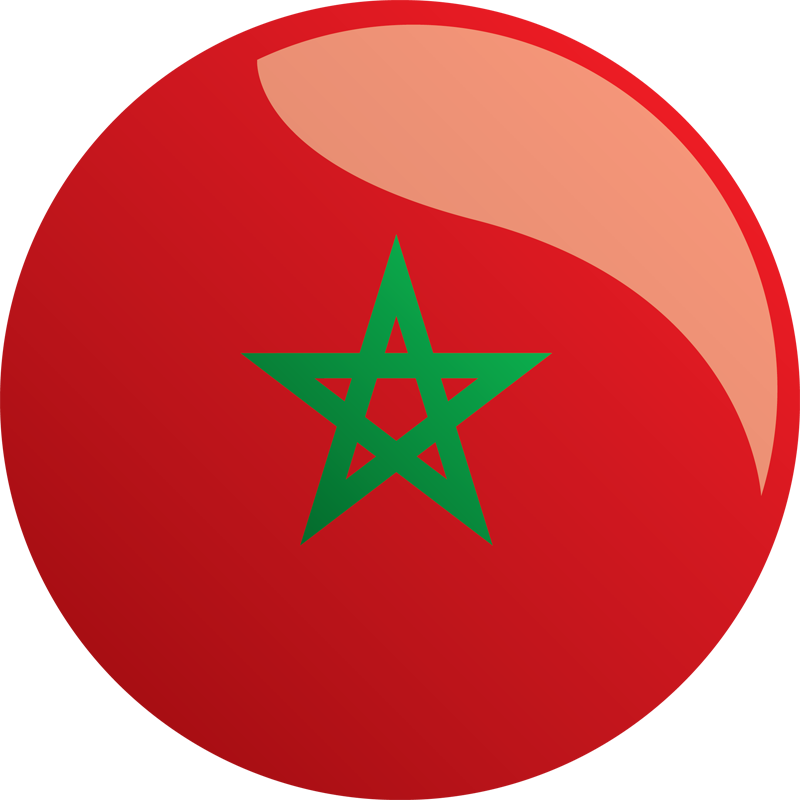
As one of the first countries to recognize a newly independent United States of America in 1777, Morocco formalized the relationship by signing a treaty of peace and friendship in 1786—a document that solidifies the longest unbroken relationship in U.S. history. The Kingdom of Morocco is the fifth largest African economy and a key leader in economic affairs on the continent. While Morocco has made progress reducing poverty in recent decades, regional inequality remains significant, with an urban/rural divide in access to public services and economic opportunities. Labor force participation of women and youth in Morocco remains one of the lowest in the world. Only 21.6 percent of women are engaged in Morocco’s labor force, while almost 32 percent of Moroccan youth are unemployed.
In 2015, MCC and the Government of Morocco partnered to implement the $460.5 million Employability and Land Compact that supported two of the Government of Morocco’s central priorities to boost economic growth in the country: employability and land productivity. The compact was designed to be a partnership to expand education and training opportunities for young people and support land productivity and more secure land rights.
All photos and video are courtesy of MCA-Morocco.
Better Teachers and Classrooms, Skilled Students, Competent Employees
Thriving, resilient economies need well-educated, highly skilled employees who meet the demands of their employers. In Morocco, access to high-quality education, technical and vocational education and training (TVET), and job placement services are critical to providing young people with the skills, knowledge, and training required to succeed in the competitive job market.
Strengthening Access to High Quality Education and Workforce Development Training
MCC, in partnership with Morocco, invested $225 million towards an Education and Training for Employability Project, which will improve the quality and access to secondary education and TVET programs that respond to the needs of the private sector.
MCC investments supported improvements in the quality of secondary education by promoting student-centered learning, enhancements to physical learning environments, and by piloting a participatory approach to school improvement in 90 schools across three regions. This partnership also developed a new operations and maintenance system to improve school infrastructure maintenance and upkeep.
In addition, the MCC-Morocco partnership supported the development and launch of a mobile application that gives students, parents, teachers, and administrators access to real-time data on grades, homework, and lesson plans. As of December 2022, the mobile application had been accessed over 5,000 times by teachers, over 47,000 times by students, and over 8,500 times by parents (according to MASSAR Mobile usage data as of December 2, 2022).
Lowering Youth Unemployment through Vocational Education and Training
Many Moroccan youth struggle to find gainful employment because of a misalignment between their skills and labor market demand. MCC-funded TVET centers tackle this challenge by providing students with in-demand skills to increase their job placement rates and incomes. The TVET centers are designed to use a public-private model to enable the private sector to identify skillset needs, while developing curricula to meet employer needs. Efforts are significantly advanced to build and rehabilitate 15 TVET centers throughout the country, offering a projected 91 programs which will deliver relevant, high-quality vocational training related to a wide range of careers.
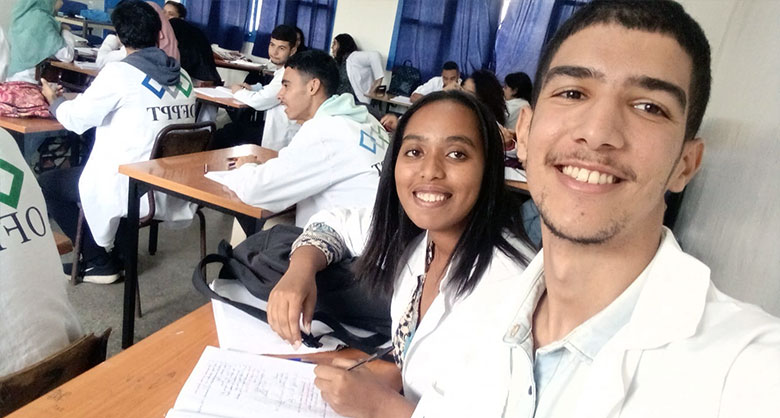
Wafaa Mokhlis (left), a student at a TVET center rehabilitated with MCC funding.
“I am proud to have been able to study in the field of civil engineering which has always been dominated by men. Many young women like me, who were drawn to certain construction sectors such as painting and fitting-finishing, are more than ever determined to conquer other construction sectors, especially those considered too rough for women.” —Wafaa Mokhlis, TVET center student
Expanding Job Placement Services
Through its Results-based Financing for Inclusive Employment sub-activity, MCC invested in replicating and expanding proven programs that provide integrated job placement services. Results-based Financing (RBF) mechanisms tie funding to measurable results, while creating greater transparency in the use of funds. Training and job placements were completed via eight job placement agencies providing targeted support to vulnerable women and youth. As of December 2022, 5,062 Moroccans, including 3,650 women, received job placement services. In addition, 1,907 people were placed in formal jobs and 815 retained a job six months after placement.
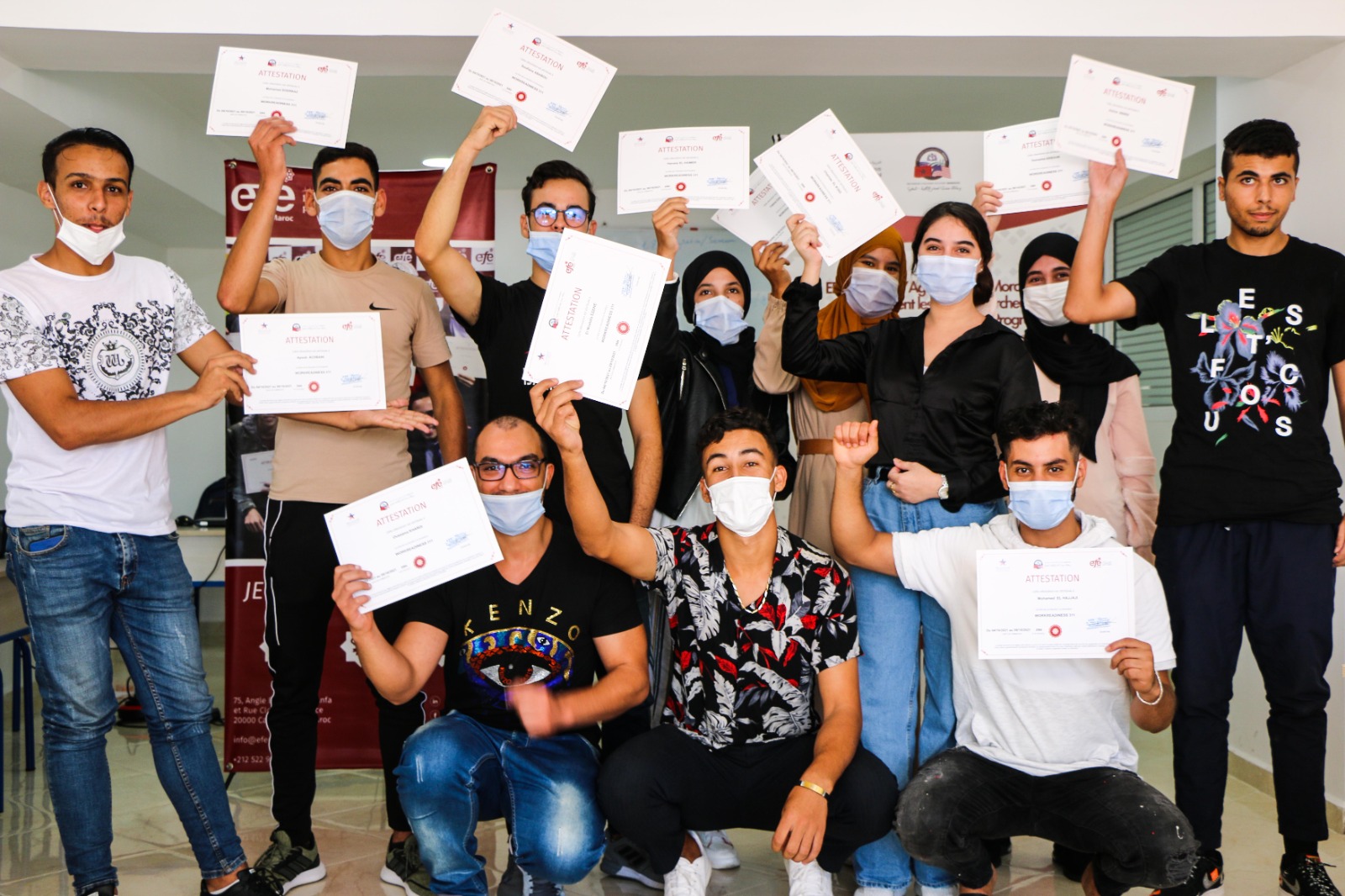
Trainees in Morocco celebrate receiving their work readiness certificates, their final preparatory step before starting new jobs.
Morocco Employment Lab
MCC launched the Morocco Employment Lab in partnership with Massachusetts Institute of Technology (MIT)’s Jameel Poverty Action Lab (J-PAL) and Harvard’s Evidence for Policy Design (EPoD). The Lab is hosted at the Policy Center for the New South, a Moroccan think tank, and will create a culture of evidence-based policymaking through rigorous impact evaluations and capacity-building. The Lab will work across four complementary components that ensure that labor market programs are informed by evidence. The four components are:
- identifying policy priorities,
- building capacity for evidence use,
- conducting impact evaluations, and
- sharing evidence to inform policy.
How Did the Education Project Affect You?
I felt a big, concrete change in our school at the level of infrastructure, that there was a vast demand for school clubs such as robotics clubs, environment clubs, plus we have more books in the school library.
—Meryem, student
This project provided the school with many activities…including the robotics workshop in which I participate! This is one of the most important activities in which I participated in my whole life.
—Fatima, student
The clubs made me build my personality and get to know myself more, especially Life Skills Club. If it were not for these clubs, I would not be the Oumaima that I am today. Now I am the president of the regional student council of my province.
—Oumaima, student
The participation of the leadership team eases the work of the director because we find the effective participation of the teachers, especially since they benefited from the trainings. The school benefited in terms of infrastructure, buildings, and electricity and water quality.
—Lakbira El Taji, Principal, Atlas Preparatory Secondary School
This project helped the school in achieving a kind of financial independence, contributing in making the administration able to improve the reception space, and be able to provide a set of educational means for teachers in educational support.
—Abdelrahim Elkaderi, Director, Hassan II High School
All educational staff have benefited from a series of fruitful and continuous trainings that developed the work, where the integrated education and the gender approach were taken into account, which reflected positively on the students, energizing them and facilitating their integration into the school.
—Imane Akoud, Principal, Abdullah bin Yassin Preparatory Secondary School
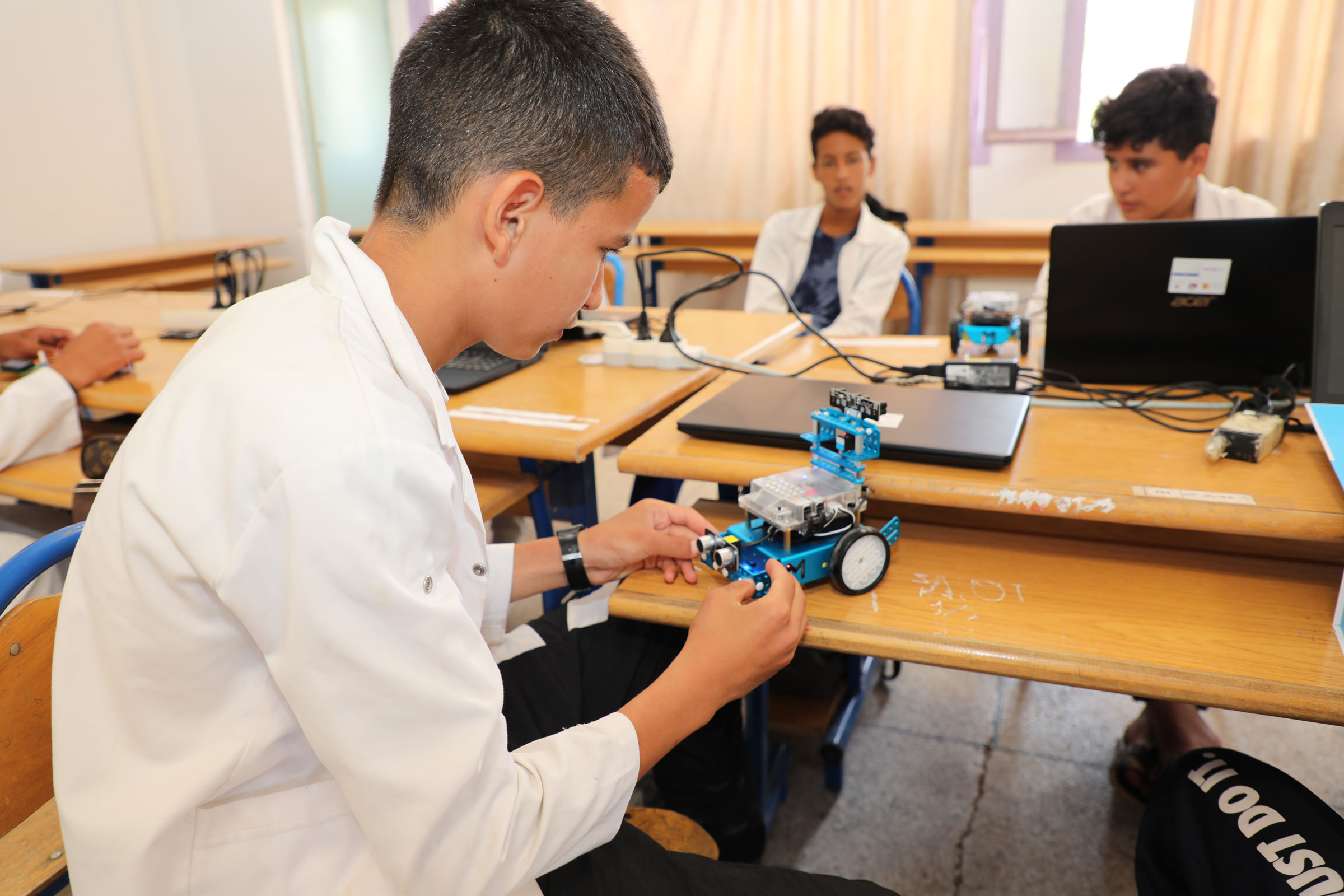
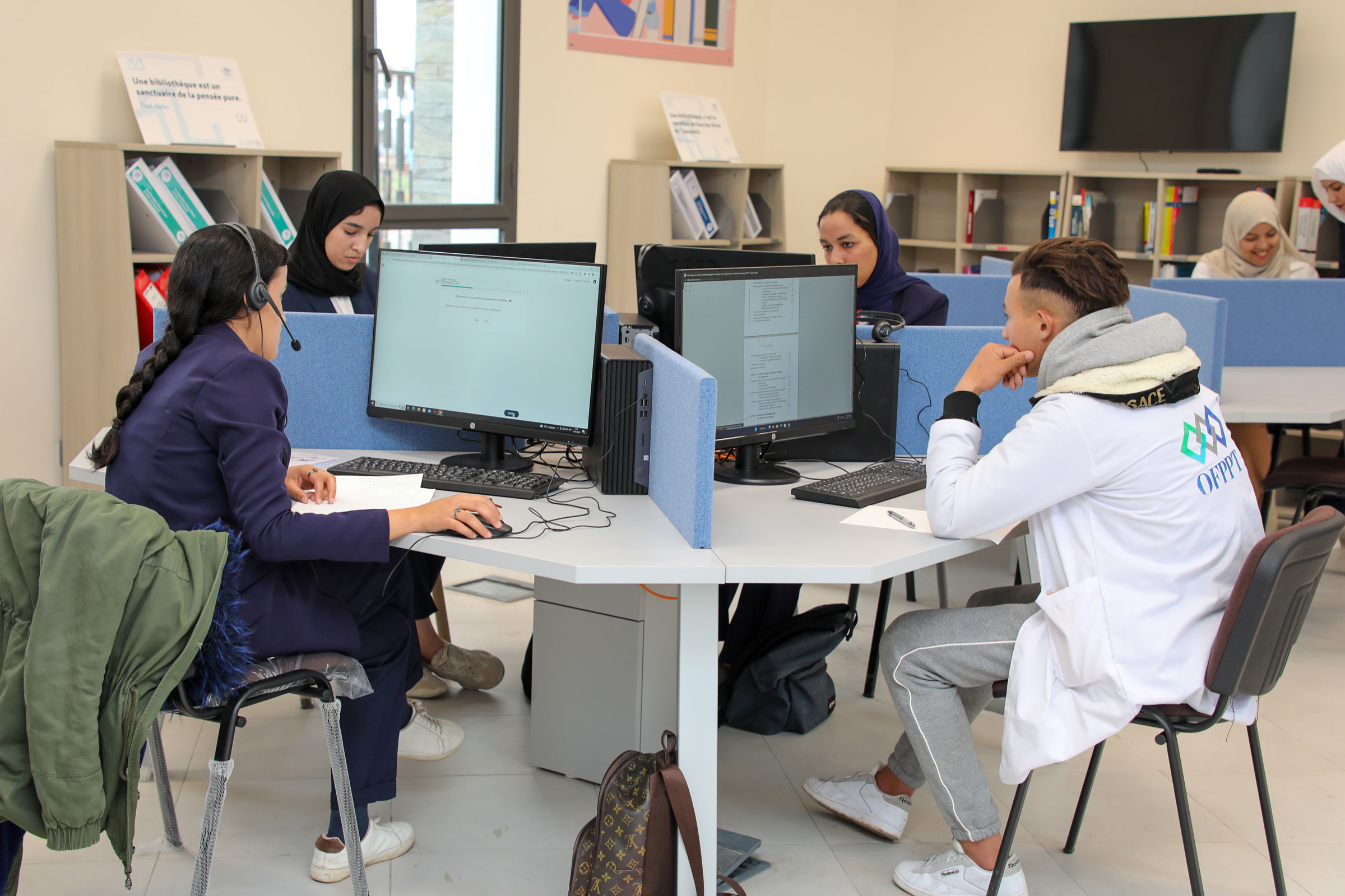
Students participate in clubs, such as a robotics club, and study in new computer labs provided through the MCC-funded compact.
Making Land More Productive
Strengthening Land Rights
Rural Land Activity
Approximately 42 percent of Morocco’s land area is held collectively by tribes, yet individual tribal members cannot buy, sell, or use land as collateral. Collective lands therefore do not provide the security and stability necessary to incentivize farmers to invest in increasing agricultural outputs. MCC supported the Government of Morocco to operationalize a 60-year-old policy allowing for the privatization of collective lands within irrigation schemes so that farmers using the collective land will gain individual titles to make their investments secure. This activity is expected to grant land titles to nearly 50,000 smallholder farmers and their families.
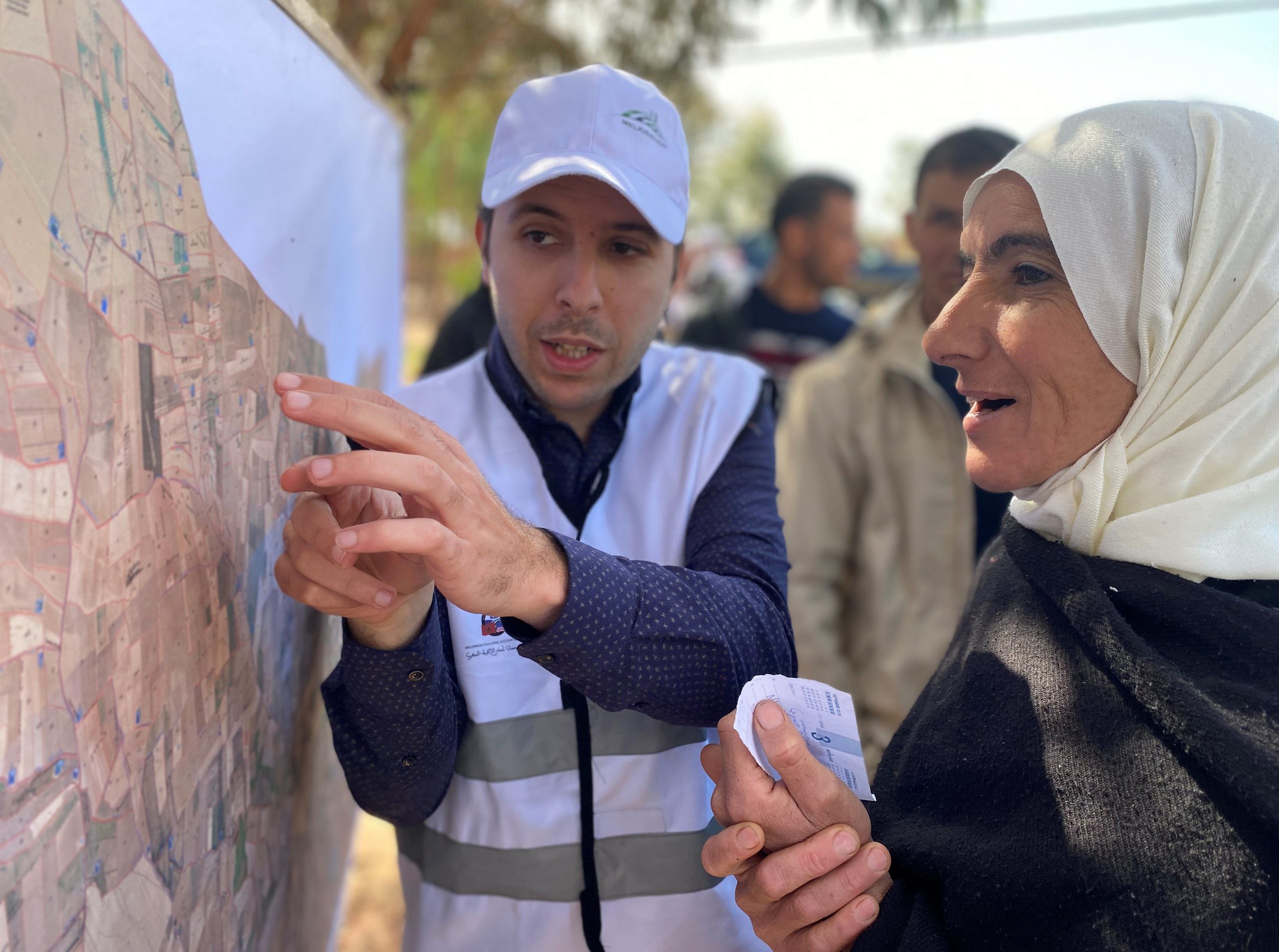
A future land title holder confirms the location and boundaries of her plot on a draft parcel map for the collective of Ouled Sbih (Haouz region) in 2020.
Industrial Land Activity
In Morocco, the poor quality of land available for industrial uses has constrained economic growth for the country’s industrial sector. MCC and its Moroccan partners demonstrated the effectiveness of two market-driven approaches – a public-private-partnerships (PPP) model and a leveraged grants facility (called “FONZID”) – to incentivize private investment in the development, management and sustainability of industrial zones.
The activity produced three PPPs signed by the Government of Morocco and private partners to develop and operate three industrial parks in Casablanca – the first-ever industrial park PPPs in Morocco. The activity also awarded $32 million through the FONZID grants facility, leveraging an additional $48 million by project sponsors to develop, improve, or expand another eight industrial zones across Morocco. Building on the success of the first round of projects, the Ministry of Industry committed an additional $15 million to fund a second call for FONZID projects, which was launched in February 2023.
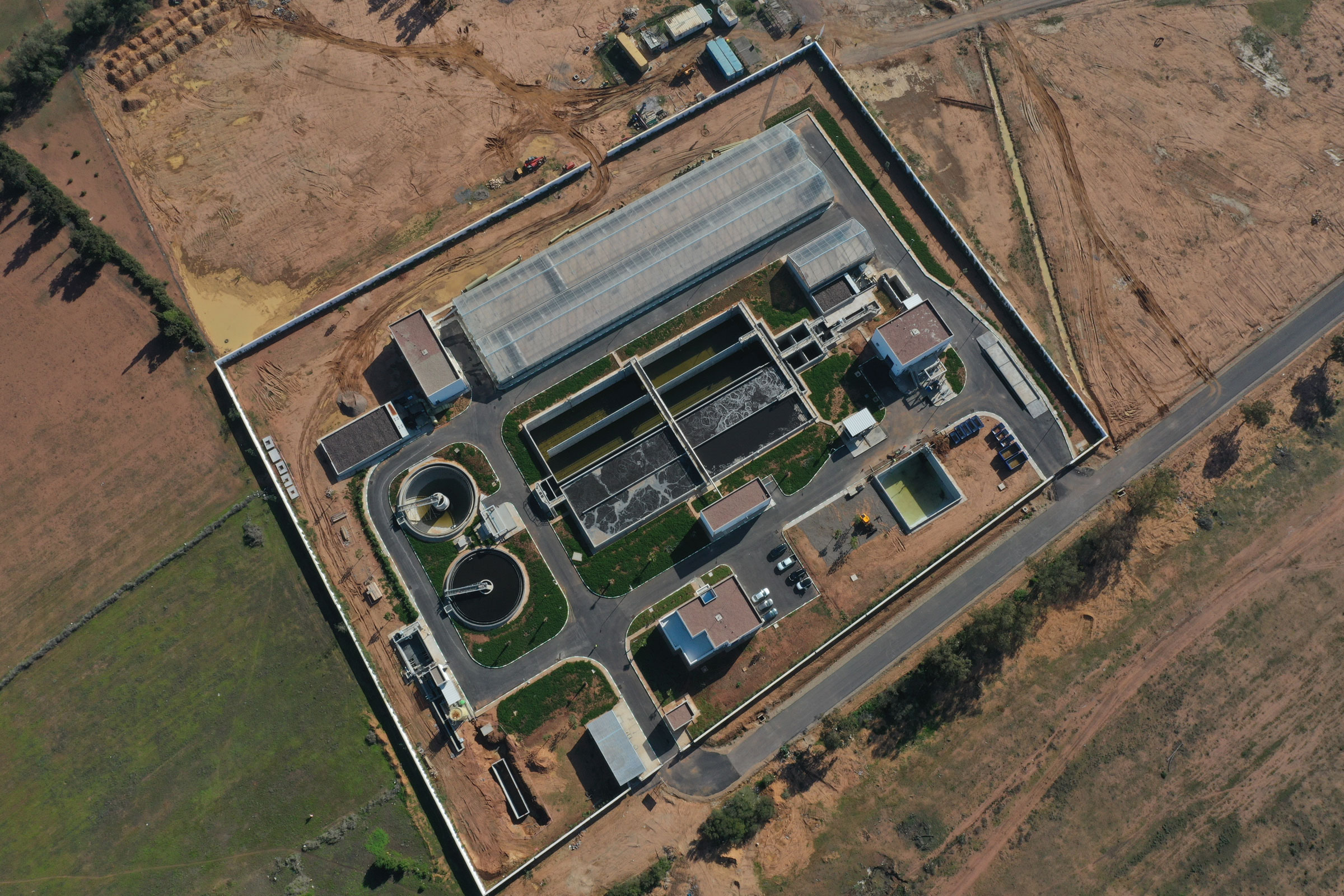
As part of these industrial zones, MCC has funded the construction of a wastewater treatment plant and water tower to help the Government of Morocco in operationalizing these zones.
Together, the PPPs and FONZID projects financed by MCC will develop or improve nearly 400 hectares of industrial land, leverage over $500 million in private investment, and create over 80,000 jobs.
Inclusion in Land Governance
Governance Activity
The Governance activity aims to improve land governance in Morocco by addressing market constraints to land investment and productivity and by supporting measures that address those constraints – including measures strengthening women’s land rights. This initiative will support the development and implementation of a National Land Strategy and Action Plan and strengthen strategic coordination on land governance among government actors.
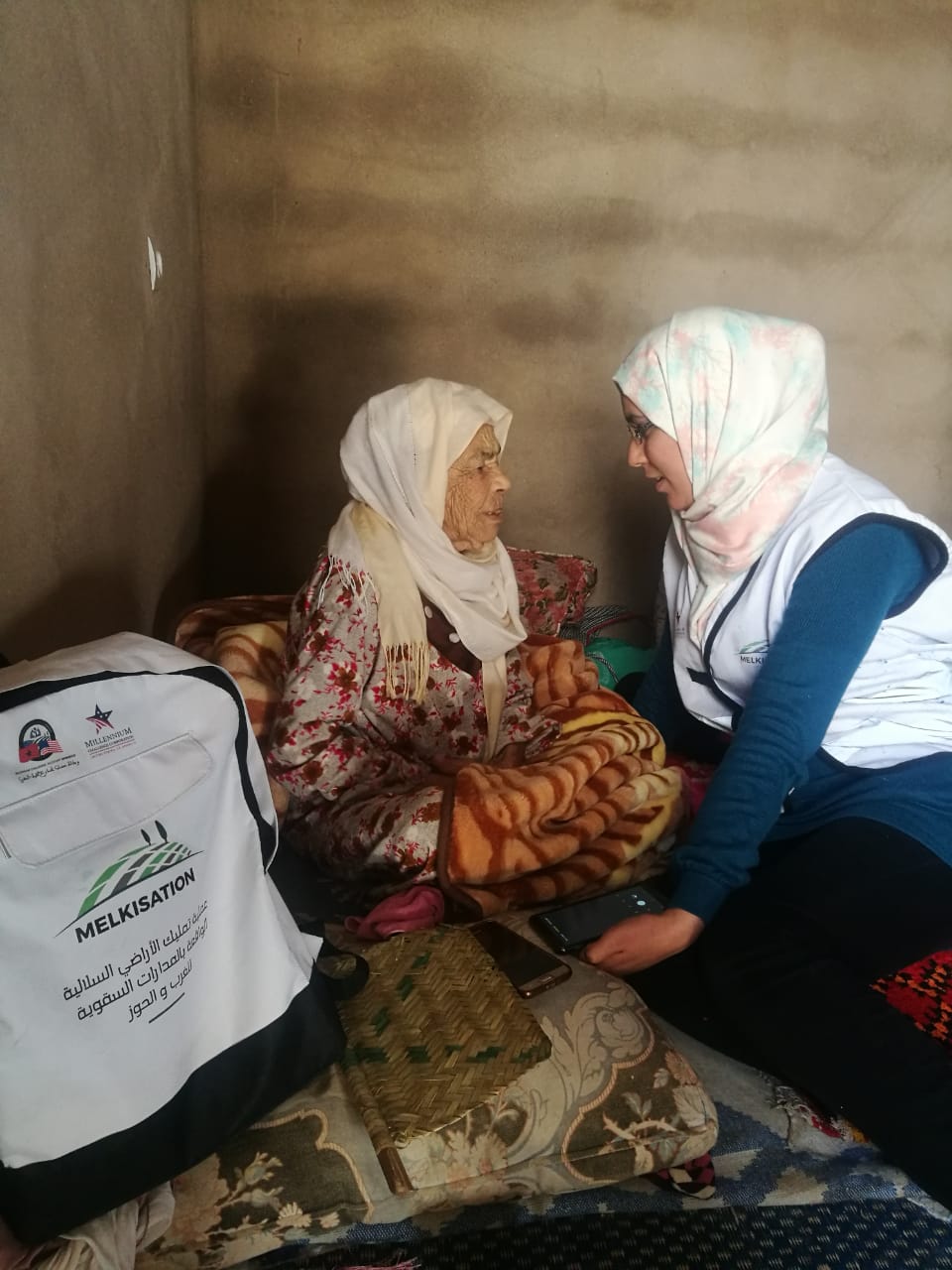
Start of field surveys in Haouz.
Center for Women’s Inclusion in Land Rights
MCC partnered with the Government of Morocco to establish the Center for Women’s Inclusion in Land Rights. The Center is based in the Ministry of Agriculture to promote women’s land rights across all land types. MCC investments will support the creation of a database to disseminate land data on women’s access to and ownership of land and their participation in land governance. The Center will also raise public awareness on issues related to women’s land rights and participate in the design of policies for gender-sensitive land tenure reforms through research studies and reports.
Laying the Foundation for Inclusive Economic Growth
MCC is proud to have partnered with the Government of Morocco to build a more inclusive economy through the expansion of education and employment opportunities for women and youth, while making land more accessible and more productive for smallholder farmers and private investors. Greater access to high quality education, job placement services, and vocational training will help Moroccans to acquire the skills required by employers, while expanding their opportunities to find work in Morocco’s competitive job market. Stronger land rights will boost economic opportunities for rural people, particularly women, and more well-governed industrial zones will promote job growth and a more sustainable industrial sector that will fuel further investment.
Together, we have built a foundation for continued progress and economic growth by improving the employment outcomes for people, while promoting the productivity of Morocco’s rich land base for people and industry and more inclusive land governance.

